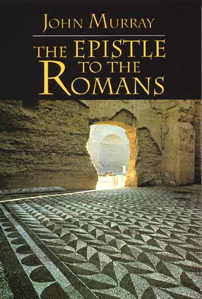
Murray, Luther, Jewett, Ridderbos
Reviewed by: Marcus A. Mininger
Reviewed by OP minister Marcus A. Mininger.
John Murray, The Epistle to the Romans. 2 vols. Wm. B. Eerdmans Publ. Co., 1959, 1965; 1 vol. combined, paper, 1997.
There is a long and rich tradition of venerable theologians writing commentaries on Romans, including such Reformed luminaries as John Calvin, Charles Hodge, and John Murray. Among these, Murray's commentary is the most recent and exegetically intensive, and therefore constitutes an ideal starting point for Reformed readers.
Martin Luther, Lectures on Romans: Glosses and Scholia. Latin, 1515–1516. Luther's Works, vol. 25. Concordia College, 1972.
It is not exegetical patience or theological well-roundedness that Luther provides so much as a profound grasp of sin and the grace that both exposes and overcomes it when God justifies the ungodly. In addition, Luther's clear, powerful prose draws the reader into the same spiritual crucible in which this father-figure of the Reformation once came alive himself, making this a unique and stirring read.
Robert Jewett, Romans: A Commentary. Fortress Press, 2007.
Jewett provides the most weighty and conceptually consistent, full-length protest to date against Luther. Although one must almost constantly disagree with him, he nevertheless challenges a Reformed reader to confront both Romans and one's own interpretative assumptions anew. Through this, one can see both that Paul's thought is much bigger than Luther's and that Jewett's socialized gospel is hardly any gospel at all.
Herman Ridderbos, Paul: An Outline of His Theology. Wm. B. Eerdmans Publ. Co., 1975; paper, 1997.
A response to Jewett and a supplement to Luther is found throughout the pages of Ridderbos. Reading any passage in Paul requires situating it within his theology as a whole. Nowhere is this more necessary than when confronting the grand, sweeping argument of Romans. And no single book helps the reader do this better than Ridderbos's Paul. Already the single best overview of Paul's thought ever written, its Scripture index also helps turn it into almost a one-volume commentary on Paul's letters. It discusses nearly every passage in Romans, not just regarding what a passage says, but especially regarding how it fits within the entirety of Paul's magisterial, redemptive-historical thinking.
April 27, 2025
The Devoted Mind: Seeking God’s Face in a World of Distraction
April 20, 2025
April 13, 2025
Suffering: God’s Purpose in Our Pain
April 06, 2025
Sunday Matters: 52 Devotionals to Prepare Your Heart for Church
March 30, 2025
On the Trail with a Missionary
March 23, 2025
Midnight Mercies: Walking with God Through Depression in Motherhood
March 16, 2025
© 2025 The Orthodox Presbyterian Church